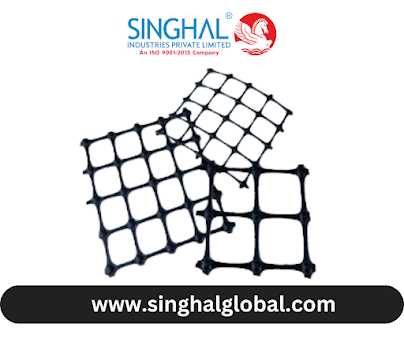Unveiling the Potential of Polypropylene Spunbond Nonwoven Fabric in Agriculture
When it comes to agriculture, one of the essential components often overlooked is the fabric that forms the basis of crop covers, soil erosion control, and more. In the modern era, sustainability and innovation have become key drivers of the agriculture industry. Singhal Industries Pvt. Ltd., India's most admired and leading packaging company, is at the forefront of providing solutions that cater to these evolving needs. In this blog, we will explore the world of Polypropylene Spunbond Nonwoven Fabric in agriculture, the role of Singhal Industries Pvt. Ltd., and answer some frequently asked questions about this revolutionary product.
Understanding Spunbonded Nonwoven Fabric
Spunbonded nonwoven fabric, often referred to as spunbond nonwoven fabric, is a type of nonwoven fabric made from polypropylene. It stands out in the world of fabrics due to its unique manufacturing process. This fabric is produced through a process that involves extruding molten polypropylene granules, stretching them into filaments, and then randomly laying these filaments onto a conveyor belt. Finally, the fabric is bonded by heat and pressure, creating a sturdy yet breathable material.
Singhal Industries Pvt. Ltd.: Pioneering the Supply of Spunbond Nonwoven Fabric
Singhal Industries Pvt. Ltd. is renowned for its excellence in the packaging industry, and its foray into the world of spunbond nonwoven fabric supplier is a testament to its commitment to innovation. This company is dedicated to enriching the lives of the community at large by providing cutting-edge solutions.
Singhal Industries Pvt. Ltd. stands as a pioneer in the supply of spunbonded nonwoven fabric. The use of polypropylene in their products ensures that the fabric is not just durable and resistant to wear and tear but also eco-friendly, as it can be easily recycled. This aligns perfectly with the modern agricultural trends that prioritize sustainability.
The Role of Spunbond Nonwoven Fabric in Agriculture
1. Crop Covers:
One of the key applications of spunbond nonwoven fabric in agriculture is crop covers. These covers provide protection to crops against adverse weather conditions, pests, and other external factors. The fabric acts as a shield, allowing sunlight, air, and water to penetrate while keeping harmful elements at bay. The result is healthier and more abundant crops.
2. Soil Erosion Control:
Erosion is a significant concern in agriculture, and spunbond nonwoven fabric can play a pivotal role in preventing soil erosion. By securing the soil, these fabrics reduce the loss of topsoil, which is crucial for maintaining soil fertility. It's also worth noting that spunbond nonwoven fabric supplier Singhal Industries Pvt. Ltd. offers a range of fabric options, including nonwoven without plastic, for environmentally conscious farming.
3. Weed Control:
Weeds can be a nuisance for farmers, as they compete for essential nutrients and resources. Spunbond nonwoven fabric acts as an effective weed barrier, reducing the need for harmful herbicides and minimizing labor-intensive weeding processes.
4. Nursery and Greenhouse Applications:
Nurseries and greenhouses rely on spunbonded nonwoven fabric to create a controlled environment for plants. These fabrics offer insulation and protection, ensuring that the plants receive the optimal conditions for growth.
5. Seed Protection:
Polypropylene spunbond nonwoven fabric can also be used for seed protection. By creating custom bags or enclosures, seeds can be shielded from adverse conditions until they germinate. This enhances the germination rate and the overall success of the crop.
Frequently Asked Questions (FAQs)
1. What is spunbonded nonwoven fabric?
Spunbonded nonwoven fabric is a type of fabric made from polypropylene using a unique manufacturing process. It involves extruding polypropylene granules, stretching them into filaments, and randomly laying these filaments onto a conveyor belt. The fabric is then bonded by heat and pressure, resulting in a durable and breathable material.
2. What are the advantages of using spunbond nonwoven fabric in agriculture?
The advantages of using spunbond nonwoven fabric in agriculture include crop protection from adverse weather and pests, soil erosion control, weed control, improved nursery and greenhouse conditions, and seed protection. It offers an eco-friendly solution as it can be easily recycled.
3. How does Singhal Industries Pvt. Ltd. contribute to the agriculture industry with spunbond nonwoven fabric?
Singhal Industries Pvt. Ltd. is a leading spunbond nonwoven fabric supplier in India, providing high-quality, eco-friendly, and durable fabric for various agricultural applications. Their products help farmers enhance crop yields, reduce environmental impact, and promote sustainable farming practices.
4. Is nonwoven fabric without plastic available for environmentally conscious agriculture?
Yes, nonwoven fabric without plastic is available. Singhal Industries Pvt. Ltd. offers a range of fabric options, including nonwoven without plastic, to cater to the needs of environmentally conscious farmers. These fabrics provide all the benefits of spunbond nonwoven fabric while minimizing environmental impact.
5. How can spunbond nonwoven fabric improve soil health?
Spunbond nonwoven fabric helps improve soil health by preventing soil erosion, protecting it from external elements, and promoting better water and nutrient retention. This, in turn, leads to healthier and more fertile soil for sustainable agriculture.
Conclusion
In a world where agriculture is constantly evolving to meet the demands of sustainability and innovation, spunbond nonwoven fabric has emerged as a valuable tool. Singhal Industries Pvt. Ltd., as the leading spunbond nonwoven fabric supplier in India, plays a pivotal role in enhancing the agricultural landscape. By providing eco-friendly, durable, and versatile fabric solutions, they empower farmers to achieve higher crop yields while reducing their environmental impact. As we continue to prioritize sustainability in agriculture, the potential of spunbond nonwoven fabric in this industry is boundless.

.png)
Comments
Post a Comment